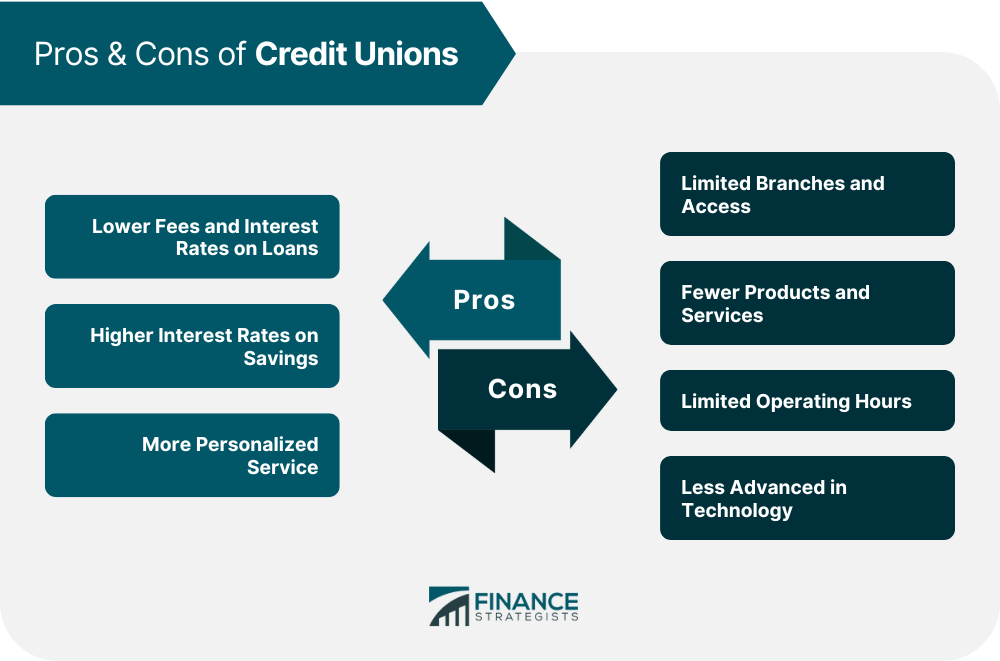Unlocking the Perks of Lending Institution: Your Overview
In the realm of banks, credit score unions stand as a typically underexplored and distinctive alternative for those seeking an extra customized approach to banking. As we look into the complexities of lending institution, a globe of opportunities and advantages unfolds, providing a glance into a monetary landscape where neighborhood worths and member-focused solutions take spotlight. From their humble starts to their modern-day influence, comprehending the essence of lending institution can possibly reshape the means you check out and handle your financial resources.

History of Credit Score Unions
The concept of credit unions arised as a response to the economic needs of people that were underserved by standard financial institutions. Friedrich Wilhelm Raiffeisen, a German mayor, is often attributed with establishing the very first modern credit union in the mid-1800s.
The idea of individuals coming with each other to pool their sources and provide monetary assistance to every various other spread rapidly throughout Europe and later on to North America. In 1909, the very first lending institution in the United States was established in New Hampshire, noting the beginning of a new era in community-focused banking. Ever since, cooperative credit union have proceeded to focus on the financial wellness of their participants over profit, symbolizing the participating concepts of self-help, self-responsibility, democracy, equal rights, equity, and solidarity.
Membership Qualification Requirements
Having actually developed a structure rooted in participating principles and community-focused financial, lending institution preserve particular membership eligibility criteria to guarantee positioning with their core values and objectives. These requirements typically revolve around a common bond shared by potential members, which can consist of factors such as geographical location, company, organizational affiliation, or membership in a specific neighborhood or association. By calling for members to meet specific qualification demands, cooperative credit union aim to foster a sense of belonging and shared purpose among their participants, strengthening the participating nature of these monetary institutions.
In enhancement to common bonds, some cooperative credit union might also extend subscription eligibility to household participants of current members or individuals that stay in the exact same household. This inclusivity assists lending institution expand their reach while still staying true to their community-oriented ethos. By maintaining clear and transparent subscription requirements, credit scores unions can ensure that their participants are proactively participated in supporting the cooperative values and objectives of the establishment.
Financial Products and Services
When considering the range of offerings offered, credit unions provide a varied array of economic products and services customized to satisfy the special needs of their members. Participants often profit from customized consumer service, as credit report unions focus on developing strong partnerships with those they serve.
Furthermore, cooperative credit union often offer monetary education and learning and therapy to assist members enhance their monetary proficiency and make educated decisions. Many credit scores unions also join common branching networks, enabling participants to access their accounts at a range of places across the country. Generally, the variety of economic product or services provided by cooperative credit union underscores their dedication to fulfilling the linked here varied requirements of their members while prioritizing their economic health.

Advantages Over Conventional Banks
Showing an unique approach to financial services, credit history unions supply numerous benefits over standard banks. Furthermore, credit unions are understood for their affordable passion prices on savings accounts, lendings, and credit score cards.
Moreover, lending institution tend to have a solid emphasis on economic education and neighborhood support. They usually provide sources and workshops to assist participants improve their economic proficiency and make sound money monitoring choices (Wyoming Credit). By cultivating a feeling of area and shared goals, lending institution can create an extra inclusive and supportive banking atmosphere for their participants
Community Involvement and Social Effect

Moreover, credit history unions typically companion with neighborhood organizations and charities to support different social reasons such as affordable housing, education and learning, and health care. By teaming up with these entities, credit scores unions can intensify their social effect and address essential issues influencing their areas. This collective technique not only benefits those in need but also enhances the social fabric of the community by fostering a feeling of unity and assistance among its members. Essentially, credit history unions work as stimulants for favorable change, driving neighborhood advancement and social development via their active involvement and impactful campaigns.
Final Thought
To conclude, cooperative credit union have a rich history rooted in area and participation, supplying a diverse range of financial items and services helpful resources with affordable prices and individualized client service. They focus on the economic wellness of their participants over revenue, cultivating a feeling of belonging and giving monetary education and learning. By proactively involving in social impact campaigns, credit report unions create a supportive and comprehensive financial setting that makes why not check here a positive difference in both private lives and neighborhoods.
Friedrich Wilhelm Raiffeisen, a German mayor, is commonly credited with establishing the first modern debt union in the mid-1800s - Wyoming Credit. By calling for members to fulfill certain eligibility needs, credit scores unions intend to cultivate a sense of belonging and shared purpose amongst their members, reinforcing the cooperative nature of these economic institutions
Furthermore, credit unions regularly use economic education and counseling to assist participants enhance their financial proficiency and make notified decisions. Generally, the array of economic products and services provided by credit score unions highlights their commitment to meeting the diverse demands of their members while prioritizing their financial well-being.
In addition, credit report unions are recognized for their affordable passion prices on savings accounts, fundings, and credit rating cards.